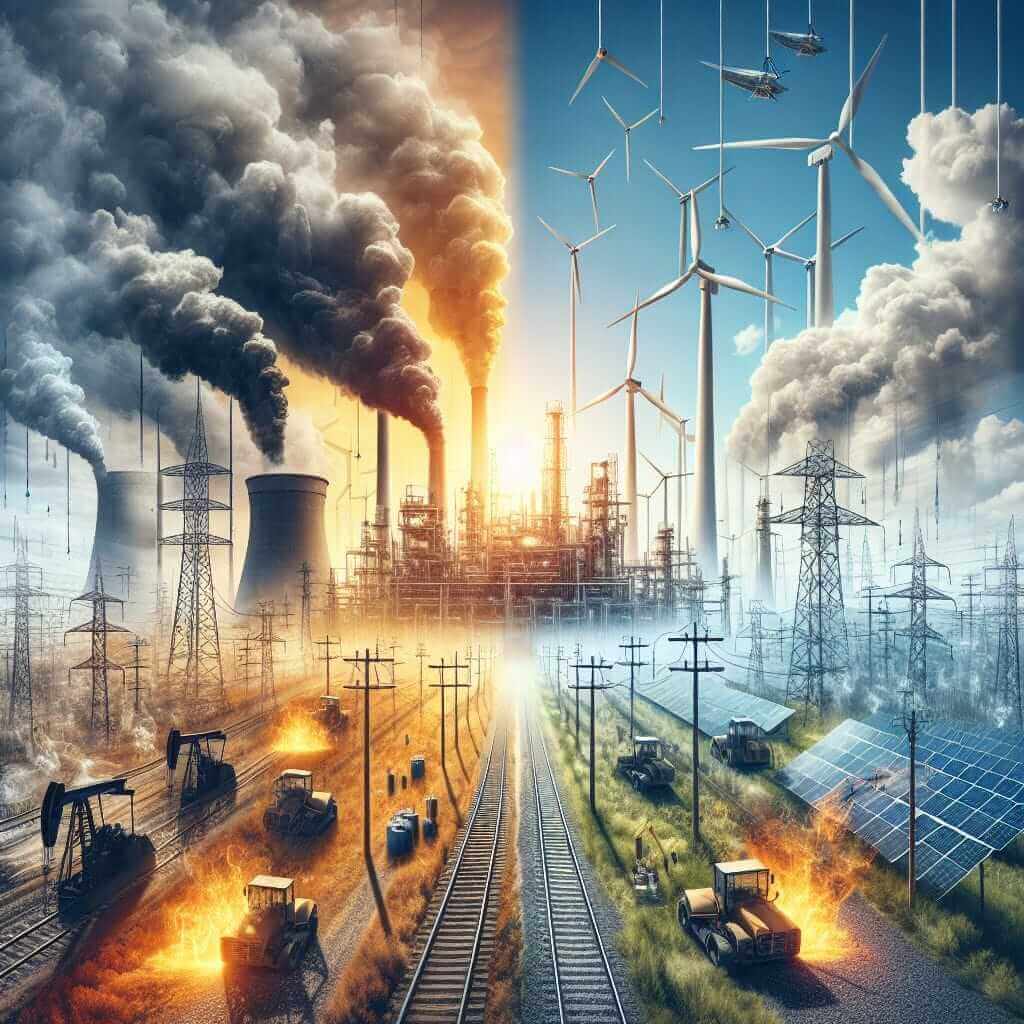The IELTS Reading section is designed to test a variety of reading skills, including comprehension of details, understanding inferences, and grasping the general idea of the text. One of the conceivable topics that might appear in an IELTS exam due to its current relevance and complexity is “What are the challenges of achieving net-zero emissions?”. Given the global emphasis on climate change and sustainability, it’s increasingly likely that such topics will continue to feature prominently in IELTS reading passages.
Achieving net-zero emissions is a topic frequently discussed in media, academic circles, and policy-making. Therefore, it is not only a pertinent issue but also a topic dense with specialized vocabulary and concepts. This provides an excellent opportunity for IELTS candidates to practice dealing with complex and informative texts.
Reading Passage
Level: Medium
Title: The Challenges of Achieving Net-Zero Emissions
Governments and corporations worldwide are making pledges to achieve net-zero emissions by the mid-21st century. However, the path to this ambitious goal is riddled with obstacles. One primary challenge is the dependency on fossil fuels. Despite advancements in renewable energy, fossil fuels remain a significant source of energy due to their relative affordability and established infrastructure. Transitioning from fossil fuels to renewable energy requires substantial financial investments and changes in public policy.

Another challenge is technological innovation. Current technology for capturing and storing carbon, known as carbon capture and storage (CCS), is still not efficient or cost-effective on a large scale. Innovations in this field are crucial but require time and considerable investment.
Economic disparities also present a significant hurdle. Developing countries often lack the resources required to invest in expensive renewable energy technologies and may prioritize economic growth over environmental policies. This disparity can hinder global efforts as all countries need to participate actively to achieve net-zero emissions.
Public perception and behavior are additional barriers. Achieving net-zero emissions necessitates public support for green policies and lifestyle changes, such as reducing meat consumption and increasing reliance on public transport. Changing public habits and preferences is a slow and challenging process.
Lastly, political will and international cooperation are paramount. Climate policies often change with new administrations, and without consistent international collaboration, efforts can become fragmented and less effective. Comprehensive agreements, like the Paris Agreement, aim to facilitate such cooperation but enforcement and commitment remain critical challenges.
Questions
Multiple Choice
-
Which of the following is NOT mentioned as a challenge in achieving net-zero emissions?
A. Financial investments in renewable energy
B. Technological innovation in carbon capture
C. Public resistance to green policies
D. High cost of fossil fuels -
According to the passage, what makes transitioning to renewable energy difficult?
A. Lack of public interest
B. High costs and policy changes needed
C. Abundance of renewable resources
D. Inefficiency of current technologies
True/False/Not Given
- The efficiency of renewable energy sources has surpassed that of fossil fuels.
- Developing countries often have fewer resources to invest in renewable energy technologies.
- All governments are equally committed to achieving net-zero emissions.
Matching Information
Match the challenges to their descriptions:
A. Economic Disparities
B. Technological Innovation
C. Political Will
D. Public Perception
- Requires lifestyle changes and public support.
- Inconsistent policies with changing administrations.
- Lack of resources in developing countries.
- Inefficient current technology for carbon capture.
Summary Completion
Fill in the blanks using NO MORE THAN TWO WORDS from the passage.
The goal of achieving net-zero emissions is difficult due to continued reliance on (10) fuels. Innovations like (11) capture and storage are not yet cost-effective. Economic disparities also play a role, with (12) countries often prioritizing economic growth. Public behavior must adapt, requiring changes in (13) consumption and transport reliance. Lastly, consistent (14) _____ and cooperation are necessary.
Answer Keys
- D. High cost of fossil fuels
- B. High costs and policy changes needed
- False
- True
- Not Given
- D. Public Perception
- C. Political Will
- A. Economic Disparities
- B. Technological Innovation
- Fossil
- Carbon
- Developing
- Meat
- Political will
Common Pitfalls
- Misunderstanding the passage structure: Ensure you understand how the passage is organized and follow the logical flow.
- Overlooking key information: Pay attention to details which can easily be missed but are crucial for correct answers.
- Misinterpreting questions: Some questions may have answers that are not directly stated but implied; practice identifying inferences.
Vocabulary
- Dependency (n) /dɪˈpɛndənsi/: the state of relying on something or someone.
- Sustainability (n) /səˌsteɪnəˈbɪləti/: the ability to be maintained at a certain rate or level.
- Carbon capture and storage (CCS) (n): a technology to capture and store carbon dioxide emissions.
- Disparity (n) /dɪˈspærɪti/: a great difference.
- Perception (n) /pərˈsɛpʃən/: the way something is understood or interpreted.
Grammar Focus
Complex Sentences: These sentences include one independent clause and at least one dependent clause. They are essential for expressing detailed ideas.
- Structure: Independent Clause + Dependent Clause (or vice versa)
- Example: “While renewable energy is becoming more affordable, fossil fuels still dominate because of their established infrastructure.”
Usage: Use complex sentences to discuss cause and effect, make comparisons, or elaborate on abstract ideas.
Advice for High Reading Scores
- Practice regularly: Consistent practice with varied texts will improve comprehension skills.
- Expand your vocabulary: Having a broad vocabulary will make it easier to understand and analyze texts.
- Develop skimming and scanning skills: Quickly identify key information and essential details.
- Understand question types: Be familiar with the different types of questions and how to approach them.
- Manage your time: Allocate your time wisely among the passages and questions to avoid rushing.
Achieving a high score in the IELTS Reading section is attainable with diligent practice and a strategic approach. Good luck!